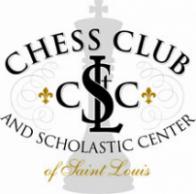
This random assignment study measured the impact of an in-school chess intervention on spatial relations analysis, measured by the Wechsler Intelligence Scale for Children-Revised (WISC-R), and behavior, measured by the Survey of School Attitudes. The assessments were administered at the end of the study period. The sample was comprised of 30 students exhibiting persistent behavior problems. Treatment students received 18 lessons over the course of one academic year, one control group received counseling, and another control group did not receive any intervention. The authors used ANOVA and tests of statistical significance to determine whether observed mean differences were statistically significant. For the students in the treatment group compared with students in the no-contact control group, an effect size of 0.070 standard deviation units was found on the cognitive assessment and an effect size of 0.103 was found on the behavior survey. However, the results were statistically insignificant suggesting no difference between treatment and control students. The study was eligible for inclusion in the systematic literature review and categorized as a Tier I study. The authors note there was random student attrition from the study but do not present statistics on the dropout rate in the treatment or control group. Because the original sample size was small, attrition further reduces the study’s ability to detect small effect sizes, which may be evidenced by the null finding of significantly different mean scores between the treatment group and control groups. The study’s focus on students with behavior problems limits it generalizability to other student populations.


